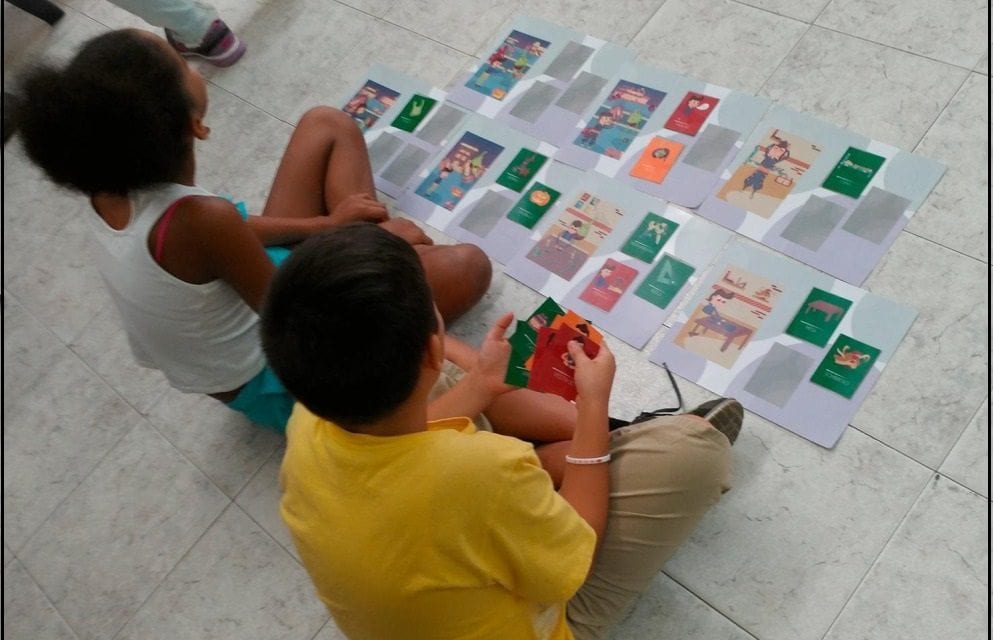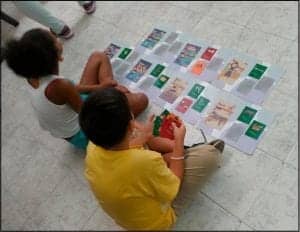Advances in digital technology including tablets, smartphones, and mobile apps have revolutionized the way people interact, communicate, and learn at home (and in classrooms) around the world. Now, an international team of researchers are working to ensure that this shifting educational landscape doesn’t leave deaf children behind and will help support literacy efforts throughout the community, according to an announcement on Elsevier’s website. The project, in Telematics and Informatics, published by Elsevier, was recently selected by an external advisory board made up of individuals from NGOs to receive the Atlas Award .
“We’re really proposing a framework that uses storytelling (and digital technology) as a way to motivate children to learn,” said Leandro Flórez-Aristizábal, PhD candidate at the Institución Universitaria Antonio José Camacho and University of Cauca, Colombia.
Flórez-Aristizábal and her colleagues are currently working to design and test an interactive storytelling app for sign language-speaking deaf children. To help in this effort, they’ve enlisted the experts: deaf children themselves. By first designing a series of black and white cards depicting images, Flórez-Aristizábal’s research team developed a general storyline, but the sequence of events was up to the kids to decide.
This interactive storytelling approach was tested as a series of case studies, involving children between the ages of 9-13 years at the Institute of Special Therapy of Senses in Cali, Colombia. A single student would arrange the cards in any order they chose and tell the story to the rest of their class through sign language.
The researchers then added additional details and colors to the cards for further testing. Eventually the colorful cards were converted to a digital format for use with a tablet or personal computer. The initial findings found that a child’s motivation increased when technology was part of the activity, specifically when rewards in the form of virtual trophies were offered.
“We started with deafness, but we don’t want to stop there,” said Flórez-Aristizábal. “We want to invite other researchers to join us in this journey and help us develop more prototypes, and adaptations for other disabilities and other educational goals. In this way we’re trying to fill the gap. Ultimately, we want to forget about disabilities and think about different abilities.”
Flórez-Aristizábal added that the aim is to continue working, and ultimately, develop an app with multiple levels and support multiple sign-languages, including Spanish, British, and Colombian Sign Language.
Read the full story and interview with the authors on Elsevier Connect.
Original Paper: Flórez-Aristizábal L, Cano S, Collazos CA, Benavides F, Moreira F, Fardoun HM. Digital transformation to support literacy teaching to deaf children: From storytelling to digital interactive storytelling. Telematics and Informatics. 2019;38:87-99.
Source: Elsevier, Telematics and Informatics
Image: Elsevier, Leandro Flórez-Aristizábal






